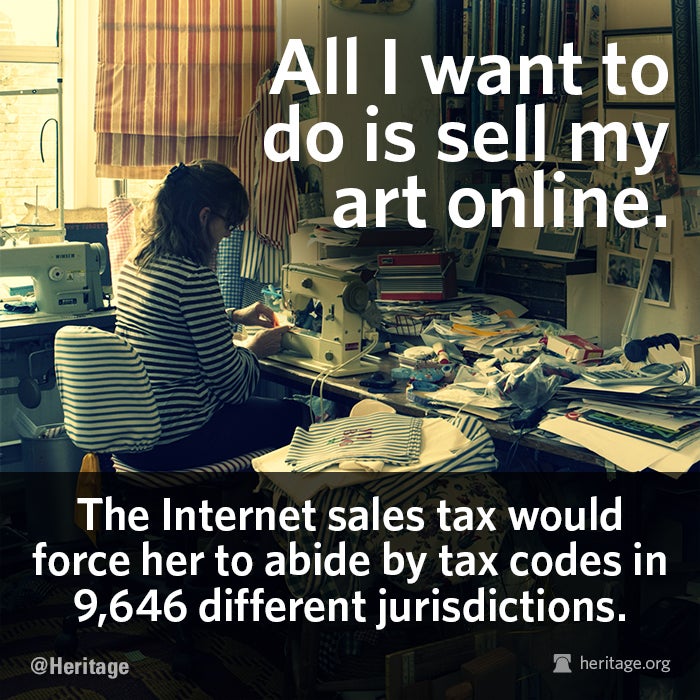The U.S. Senate is debating the so-called Marketplace Fairness Act. It’s a bill that would result in the taxation of Internet sales, driving up costs for consumers. The legislation cleared a procedural hurdle Monday and could have a floor vote by Thursday.
This is a classic case of where the interests of big business and big government intersect.
But not all businesses are signing on to this new scheme. Etsy, an e-commerce hub where individuals can sell handmade items such as arts and crafts, warned yesterday that the legislation would “unnecessarily burden small businesses. Most Etsy sellers work from home and don’t have the administrative resources to comply with the law.”
According to the Tax Foundation, there are 9,646 tax jurisdictions in the United States, creating the kind of complexity that would frighten any small business.
“How can we possibly know the tax rates in [those] jurisdictions?” said Overstock.com CEO Patrick Byrne. “In one jurisdiction, cotton candy is food; in another it’s entertainment or candy.”
Reason TV’s Nick Gillespie interviewed Byrne in 2009 about why he’s opposed to the plan. Byrne said the Marketplace Fairness Act is anything but fair.
Byrne argued that Internet merchants “put a lot lesser load on a local infrastructure” than a corporation like Target or Walmart. Big corporations not only have multiple storefronts, but they serve employees and their children with roads, sewers, schools, and other buildings.
“We don’t impose nearly that load, so it isn’t fair that we should have to pay those taxes,” Byrne said.
Overstock.com is not the only popular Internet retail company that opposes the bill. One of the biggest critics is eBay, which is attempting to drum up a grassroots rebellion against the Marketplace Fairness Act.
These companies are members of NetChoice, a coalition of e-commerce companies. Executive Director Steve DelBianco said NetChoice opposes the bill because of its incredibly complex sales tax regimes that threaten a fragile economic recovery.
“The bill has never been about helping Main Street, but about helping Big Box stores,” DelBianco said.






























